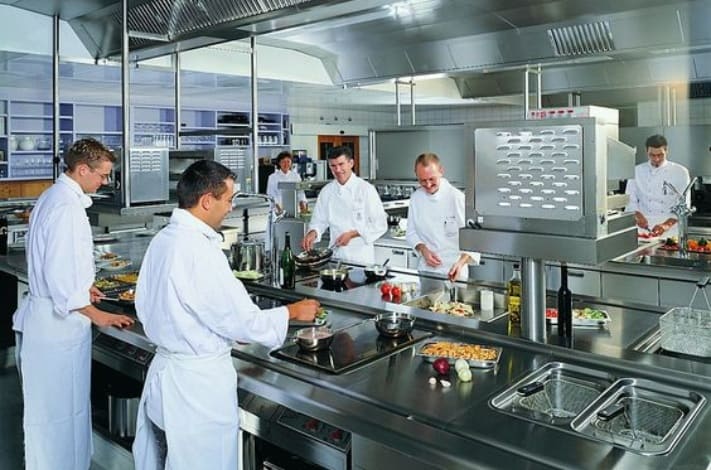You’ve decided to try your hand at producing commercial foods. Maybe you’re starting your own catering business, selling baked goods at a local farmer’s market, or selling food from your food truck. Regardless of your new endeavor, if it has to do with food, you need a commercial kitchen to prepare that food.
Why Do You Need a Commercial Kitchen?
Why bother with a commercial or commissary kitchen when you have your own kitchen at home? In many municipalities and states, you’re required to prepare food for sale to the public in a commercial kitchen. The reason is simple: commercial kitchens are regularly inspected by health departments and reduce the possibility of spreading illness and disease. By preventing possible pathogens from entering the food you prepare, you can avoid the liability of making customers sick. Furthermore, the health department is unlikely to shut down your business, provided you follow all the regulations.
Home kitchens are unlikely to pass all the requirements required by law, which is why you should use a commercial kitchen, whether for a catering business, a food truck business, a bakery business, or a pop-up restaurant. Having an open kitchen floor plan, children, pets, and appliances only designed for noncommercial use is usually prohibited when it comes to selling food to the public. Even if your kitchen meets commercial status, you may have to undergo health department inspections and carry extra insurance on your homeowner’s policy.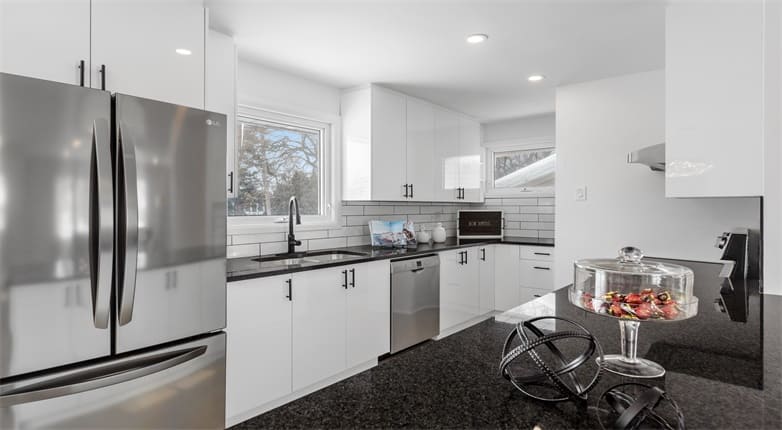
How Do You Find a Commercial Kitchen for Rent?
But how do you find a commercial kitchen space for rent if you don’t have your own? The good news is commercial kitchens are available for rent. What’s more, when you rent a commercial kitchen, you also get use of the appliances, kitchen tools, and storage space there.
Okay, so you need a commercial kitchen, but do you just do an internet search for “commissary kitchen near me”? It might be that easy. But not all commercial kitchens are the same. That’s why you need to do some research as to what might be available.
Possible ways to find a commercial or commissary kitchen include:
- Ask other commercial food prep owners what commercial kitchens they use.
- Asking vendors at local farmer’s markets.
- Talking to small business owners about where they create and package their products.
- Asking schools, restaurants, retirement homes, and churches if they rent out their commercial kitchens.
Places such as restaurants, churches, and schools are often gems if you can find one that will rent its kitchen out to you. However, be aware you must work around the organization’s schedules, and the kitchen may not be available when you would like.
Types of Commercial Kitchen Rentals
Not surprisingly, there are several types of commercial kitchen rentals. These include:
- Private Commercial Rentals
- Shared Commercial Rentals
- Restaurant Rentals
- Non-Traditional Rentals
We’ll go through each of these.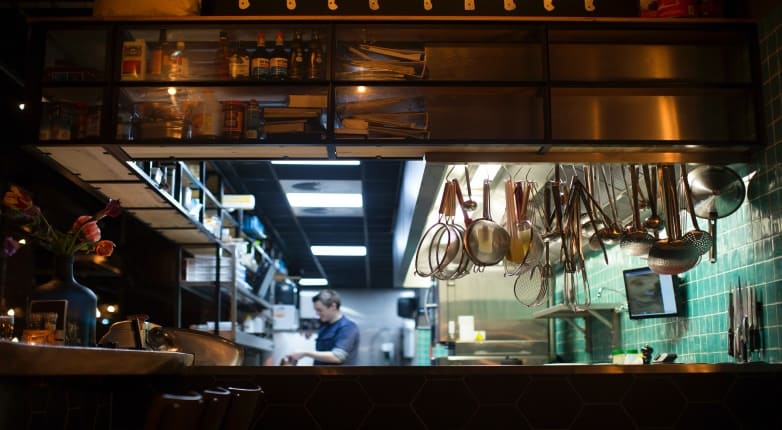
Private Commercial Rentals
Private commercial rentals are just as it sounds. You, alone, are renting the commercial kitchen, which means you usually have the storage space and equipment for yourself. You can use it whenever you need to.
This is great for businesses that do a lot of cooking and prep work every day. The negative side is that if you are only using the commercial kitchen occasionally, you are paying for that kitchen to sit idle, which could be very expensive.
Shared Commercial Rentals
Shared commercial rentals are popular with small business owners who might be catering, running a food truck, running an event popup restaurant, or making batches of products to sell either to local stores, farmer’s markets, or other venues. You usually have to schedule the time you’re going to use with the owner or management so that others can use the commissary kitchen in their own time slots.
Shared commercial rentals are often the most cost-effective when it comes to commercial kitchen rentals. You usually pay by the hour, which gives you a generally lower cost than privately renting.
The negative side is that you share storage and cold storage space. It may not be enough for your needs. You may come in at your appointed time to discover nothing is clean, because the last user didn’t clean up their mess. Also, some shared commercial rentals may not have the flexibility for that sudden event you’ve been asked to provide food for, because the time slots are already full.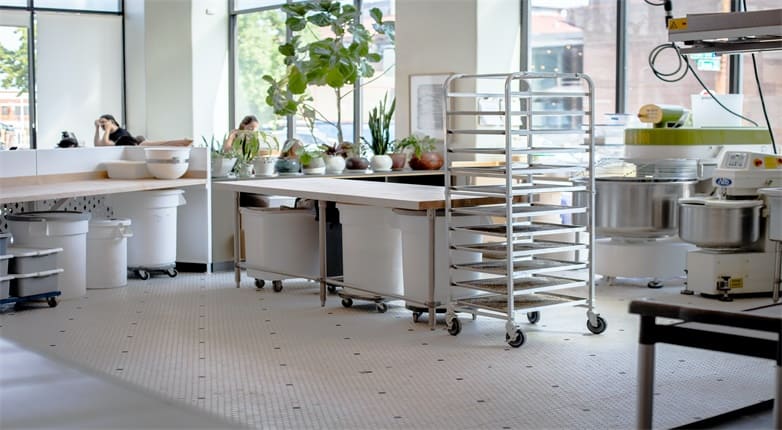
Restaurant Rentals
Another commercial kitchen rental some people may not consider is restaurant rentals. As the name implies, the restaurant rents their kitchen to you during hours when they are not using it. This can be useful for those who plan on using the kitchen during the late evening hours, perhaps after one has finished working a day job.
If you find a restaurant willing to rent their kitchen, you won’t have much flexibility in terms of time slots. You will have to finish your work and clean up before the restaurant staff needs to use it. You won’t be able to make special arrangements if you need the commercial kitchen at a time when the restaurant is using it. However, you may have a reliable time block you might not have with other types of rentals.
Non-Traditional Rentals
Other commercial kitchen rentals can include non-traditional rentals, such as renting out commissary kitchens from churches, clubhouses, fairgrounds, and retirement homes. Like restaurant rentals, you may be limited on when you may use the commercial kitchens.
One plus side to a non-traditional rental is that you may already have a built-in event space with a commercial kitchen. This is important if you’re looking for a venue to sell your food.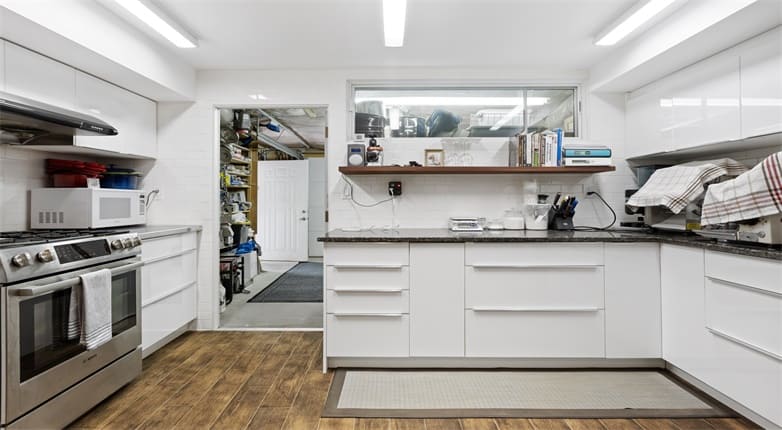
Factors to Consider Before Renting
Before you begin searching for a commercial kitchen, the first step is to ensure you have all your paperwork completed. In most jurisdictions, you will at least need a business license and food handling permits. You should also be familiar with the local zoning laws, regulations, health codes, and health inspections. This is important because many commercial kitchens cannot rent to you if you do not have the proper licenses and permits.
Knowing the local laws and health codes will enable you to determine if the place you’re considering is up to the required codes. The last thing you need is to have your business shut down because the commercial kitchen fails its health inspection.
How to Choose the Right Commercial Kitchen
Your choice of which commercial kitchen will depend on many factors. These include:
- Location — preferably closest to your market, suppliers, and where you live.
- Equipment and appliances — what commercial appliances and equipment are in the facility, and what age and condition they are in. Do they have catering equipment, or will you have to search for “catering equipment hire” on the Internet?
- Health and safety inspections — has the commercial kitchen passed or failed health and safety inspections? You want a place with an excellent record; not one that is on the verge of being shut down for failure to abide by the laws.
- Storage facilities — what type of storage does the kitchen have, and how much will you need? You don’t want to haul your ingredients around all the time.
- Does it cost more to store supplies or use certain pieces of equipment? If so, how much?
How Much Will This Cost Me?
The cost to rent a commercial kitchen depends largely on location. If you are renting by the hour, you can expect to pay anywhere from $15 to $45 an hour. However, in large cities such as New York City, Los Angeles, Seattle, and San Francisco, the cost may be higher.
